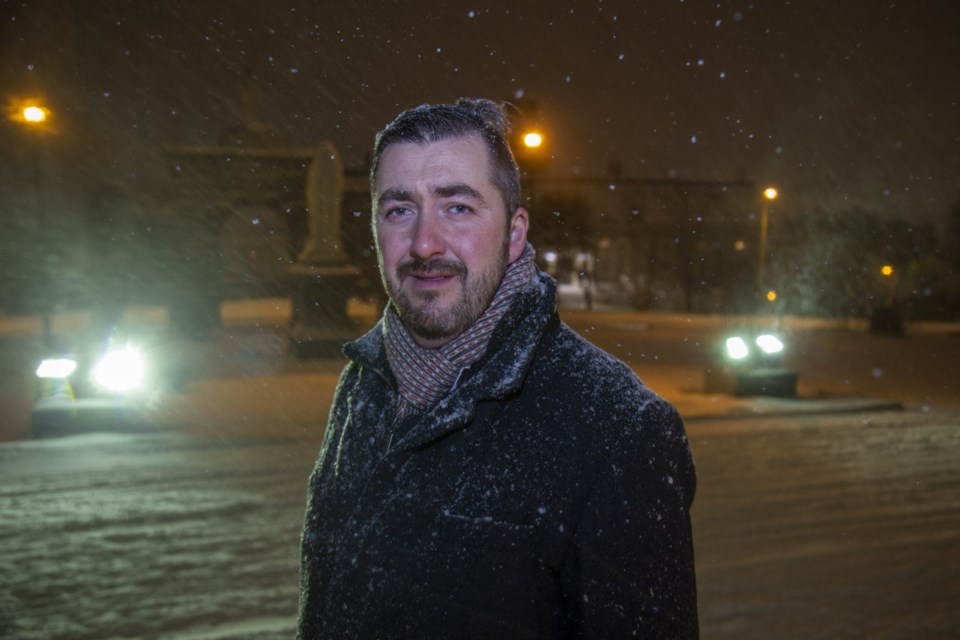ST. JOHN'S, N.L. — Only 110 people have enrolled so far in Newfoundland and Labrador's basic income program for some older adults, a figure advocates say underscores the complexity of traditional social assistance programs that often leave users afraid of losing benefits.
That figure represents less than one-third of the approximately 350 people who qualify for the program, officially launched in May, said the province's Department of Children, Seniors and Social Development.
Josh Smee, chief executive of the non-profit Food First N.L., said he wasn’t surprised enrollment seemed low.
“The system itself is so complicated,” he said in a recent interview. "I would imagine that the conversation about a big shift in how your benefits come through could be intimidating.”
The basic income pilot program was announced in 2023, as part of the provincial government's poverty reduction strategy. It's aimed at adults aged 60-64 who collect income assistance and support programs offered by the health authority. Those who qualify and enrol will see their incomes increased to the level they would receive when they turn 65 and begin qualifying for seniors benefits from the federal government.
The difference in income could be significant. For example, a single adult living alone on provincial income support collects a basic amount of $561 each month. They can also qualify for other benefits, including up to $299 in rent coverage. Under the basic income program, they’d receive $1,937 a month.
But with more money coming in, they could receive less help paying for services such as home support from the provincial health authority, the program guidelines say. People may worry they’d be worse off if they wind up having to pay more for those services, said Jim Dinn, leader of the provincial NDP. Some may also fear landlords will realize they have more money and hike their rents, he said in an interview.
A successful basic income program needs a strong social safety net behind it, said Dinn, who has long pushed for a provincial guaranteed income plan.
"I'm still calling for a basic income plan," he said. "But we still need deeply affordable housing."
He could only speculate about why uptake for the program seems to be lagging. The Department of Children, Seniors and Social Development did not give specific reasons when asked.
Officials are contacting those who qualify and providing them with information about the benefits they currently receive and how they would change if they take part in the pilot, said an emailed statement from spokesperson Kathryn Summers.
"This approach allows people to engage in a detailed discussion with income support staff about the pilot and ask questions related to their particular circumstances so they can make an informed decision to participate," she said. All those who qualify have been contacted, and enrolment is ongoing, she added.
Dan Meades agreed that people may worry they’ll end up with fewer benefits. The provincial coordinator with the Transition House Association of Newfoundland and Labrador said he hopes the province is tracking such problems and adjusting the program with an aim to ultimately scale it up.
Smee said people on income support are often weary of the program’s complex and voluminous rules, many of which are set up to claw back benefits if a person earns money or changes their living arrangements. They may be afraid to agree to receive more money in a new program, he said.
He said he also wondered if the basic income pilot could be expanded to other groups, if just 350 people might qualify now.
“It does feel like a number larger than a few hundred is still feasible," he said in a recent interview
The province is working to make its income support programs less complicated, and changes have already been made, Summers said. For example, people under 30 now receive the same amounts as other adults, and recipients who have boarders living with them do not have any of their benefits clawed back.
The government is also launching a disability benefit that will top up the federal government’s program, beginning in July. Those who qualify will receive up to $400 a month, officials have said. More than 5,000 people in Newfoundland and Labrador are expected to be eligible, Summers said.
This report by The Canadian Press was first published Feb. 17, 2025.
Sarah Smellie, The Canadian Press



